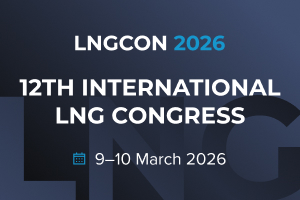Biogas leaders look to the future

Investment opportunities
with Khash Mohajerani, co-founder and partner at OrbeNovo Capital
OrbeNovo is a specialist energy investor focused predominantly on mid-market real assets and private equity stage investments in Western Europe. The organisation was founded by Khash – who began his career at Warburg Pincus in the London-based energy team – and Peder Bratt, who was Warburg’s head of energy for Europe, Middle East and Africa until 2022.
The business partners observed that the energy sector, from an investor standpoint, is underserved by specialists.
“You have asset-heavy business plans with long capital cycles, changing regulatory drivers and complexities and you ultimately have physical and economic constraints that you need to bring together,” Khash told Bioenergy Insight.
“And we see there are very few specialist investors in that space. So that’s why we set up the business.”
OrbeNovo approaches the world in two core verticals.
“One is what we call value add infrastructure, or sustainable real assets. So, this is really investing into platforms that are becoming owners and operators of assets, like we've done in the biogas sector today. And the second is what we call mid market “picks and shovels”, which is effectively the equipment, service and technology players that serve the roll out of those sustainable real assets. And we try and create linkages between the two.”
As an example, OrbeNovo are active owners as asset-based investors in biogas, through portfolio company EAG Bioenergy.
OrbeNovo began to look seriously at the biogas and biomethane sector in 2022. It became clear that there were a lot of larger infrastructure-focused investors looking to deploy hundreds of millions of dollars into building predominantly development-led biomethane platforms. But then, when OrbeNovo looked at the UK, it saw a highly fragmented market.
“Of approximately 750 anaerobic digestion sites in the UK, we define around 70% as small, single-site operations. Typically farm-based, with a single owner. So, we realised that there was a consolidation opportunity, because it is such a fragmented industry. That brings a value creation opportunity, by creating scale through buying and developing a portfolio. We also saw there was some financial distress in the sector because a lot of the capital that was provided to build these single sites was inappropriate. It was really expensive capital.”
“We saw an opportunity to consolidate ownership in the lower end of the market, build scale and optimise those assets. But we also recognised that to achieve this and create value, you have to build a best-in-class operating platform and invest in the right technology and human capital to actually run these assets well on a consistent basis. That kind of business building is what we like to think we’re good at. And having that capability is ultimately why we think we can acquire assets from current owners on terms that are attractive for both sides.”
Khash and Peder met the management team at EAG Bioenergy in 2023, and spent about six months working through an investment thesis with them – and ultimately decided to back them.
OrbeNovo then bought and carved out EAG Limited from a public listed company (PLC) in January last year. Subsequently, the team has executed two further M&A deals and raised a substantial capital commitment dedicated to EAG to fully fund its business plan in the UK and Ireland for the next five years.
“With debt and leverage, we’re aiming to deploy £200 million to £250 million of total capital through EAG over the next three years.”
2025 International Biogas Congress & Expo
As a speaker at this year’s event, Khash said his talk is designed to provide a differentiated view from regulations, or what the future of biomethane will be.
“I’m going to focus on the private equity perspective on biogas and biomethane, because there are relatively few private equity players in the space – many have been core infrastructure investors. And so, one thing I'll focus on is thinking about the biogas value chain, right from greenfields to brownfields, to buying operating assets to doing turnarounds, and how we and other private equity investors think about investing across that chain.”
Bioenergy Insight then asked for Khash’s perspective on the biggest hurdles facing investors. He pinpointed regulatory clarity. “You get what you subsidise,” he said. “You saw it when FiTs [Feed In Tariffs] and RHIs [Renewable Heat Incentives] were introduced, there was a massive uplift in solar PV, a massive uplift in biogas. The regulatory framework around GGSS [Green Gas Support Scheme] is not working particularly well – the uptake has been woeful.”
For Khash, there are a few things that need to be simplified: “I think, more broadly, everyone is asking for more clarity as to what the long-term future for the sector is. From our EAG perspective, there are two important questions. One is, what is going to happen to existing biogas subsidies? The assumption today is that they will expire, and there will be nothing to replace them. If that’s the case, there are some big implications – the vast majority of these assets are unprofitable without subsidies. And if they’re unprofitable, people won’t be able to afford to convert them into biomethane assets.
“So having some clarity around whether biogas subsidies will be extended would be helpful. If the answer is no, will there then be a subsidy in place to encourage the conversion of biogas plants to biomethane?”
One further challenge for Khash is engineering capacity in the market.
“We think there is a lack of high-quality engineering capacity, which is slowing down the development of biomethane plants. So, we think there needs to be ways of getting more qualified engineers into the sector.”
That could be achieved through some of the larger engineering and EPC business devoting resources to the sector. Or it could be supported by government training schemes, helping repurpose skills from electrical or gas engineering to suit the biogas market.
The year ahead
This year promises to be an exciting one for OrbeNovo, as the first asset it acquired – in Northern Ireland – is being converted from a biogas plant to a biomethane facility on a subsidy-free basis.
“You don’t have subsidies in Northern Ireland, so we’re looking to reach FID [Final Investment Decision] on that by the end of this year, so we can bring it online by the end of 2026.
“We’ve got our grid connection approved, we’re going through planning, we have the feedstock. So that one we are very, very excited about, because it should be the first of hopefully many assets that can convert biogas to biomethane.”
“We love this sector, there’s a lot to do here. We think it’s relatively early in its growth trajectory, and we’ve seen industries like this. It’s moving from a relatively early stage, which is fragmented and driven by local players, to scaling up to a much more industrialised and institutionalised market. Consolidation in the market is a result of that, and that’s going to be a great thing.
“As investors, we want to do more here. We’re looking at setting up similar platforms in Western Europe, including Italy, Netherlands, France and potentially Germany and Spain.
“We want do double down and find more ways to deploy capital into the sector,” concluded Khash.
The importance of biomethane certification
with Tim Hamer, secretary general of the European Renewable Gas Registry (ERGaR)
ERGaR facilitates the cross-border trade of renewable gas certificates across Europe. At the moment, seven countries are connected to the ERGaR CoO (Certificate of Origin) scheme and, via ERGaR, certificates can be traded between these countries. They are Germany, Denmark, Netherlands, UK, Switzerland, Slovakia and Austria.
As well as enabling and co-ordinating cross-border trade, ERGaR functions as the European association for all stakeholders in the biomethane certification supply chain. ERGaR currently has 44 members from 14 European registries. The organisation aims to make the trading of biomethane certificates easier for those members.
Biomethane certification is useful for several reasons. It verifies sustainability; confirms greenhouse gas reduction; supports the circular economy; enables access to subsidy schemes; boosts investor confidence and enables circular trade. As well as that, it ensures legal compliance; prevents greenwashing; facilitates carbon offsetting; builds trusts with consumers; and supports decarbonisation in multiple sectors.
At the moment, there are two types of biomethane certificates established at EU level (Guarantee of Origin and Proof of Sustainability) and in some European countries (e.g. UK, Germany and Austria) other certification systems are in place.
Tim Hamer will be a speaker at this year’s International Biogas Congress and Expo. He said he is looking forward to speaking at the event, and that his presentation will focus on the Biogenic CO2 certification initiative.
“This is an industry initiative where we plan to develop a certification scheme for biogenic CO2. This can be operated as an industry project or by the European Commission. We’re working with around 20 European associations and over 100 experts on this project,” explained Tim.
Biogenic CO₂ in biomethane refers to the carbon dioxide (CO₂) that originates from organic, renewable sources during the production and combustion of biomethane. Unlike fossil-derived CO₂, biogenic CO₂ is considered carbon-neutral because it is part of the natural carbon cycle.
It has multiple prospective uses, including power-to gas – whereby biogenic CO₂ is combined with hydrogen (H₂) to produce synthetic methane or e-fuels. It can also be used to support algae growth for biofuel production and other bioproducts. Biogenic CO₂ can also be injected into geological formations for long-term sequestration. As well as that, it can be applied to enhanced oil recovery. This means it can help extract more oil from depleted reservoirs – although this use is not always considered sustainable.
Consequently, biogenic CO₂ has several potential sources and use cases. Tim said that it could be beneficial for the market to have more certainty. At the same time, it could be advantageous to give biogas producers greater incentives to capture biogenic CO2. Consequently, a certification scheme is being developed.
“The importance of this certification lies in its ability to create a unified market for biogenic CO2,” added Tim. “As the demand for biogenic CO2 is expected to increase, particularly in sectors like e-fuels and chemicals, having a robust certification system in place will be vital for ensuring transparency and sustainability.”
This will be Tim’s first time attending the International Biogas Congress and Expo. He told Bioenergy Insight it will bring a great opportunity to meet industry leaders and, at the same time, learn about the latest policies, technologies and global market developments.
“At ERGaR, we try to serve the renewable gas certification market, and it is vital to be up-to-date on the latest developments, and to be able to discuss these in the margin of the conference.
Additionally, it is a great opportunity to get the feedback from the market on the biogenic CO2 certification project I will be presenting.”
He went on to say that ERGaR aims to keep its members informed about the latest developments in the renewable gas certification sector.
It is a benefit to be a Brussels-based organisation, because it can closely follow the work of the European institutions via the public channels and informal communications. ERGaR also works with its members and other orqanisations in gathering the relevant information.
“After we get some updates, we’ll use our newsletter and emails for regular updates on key changes. Later, during our working group meeting we discuss the most recent developments in more detail,” continued Tim. “Last but not least, we organise webinars and trainings to go into more depth in specific topics.”
However, the certification sector is fragmented, which can bring difficulties. For Tim, one of the most critical challenges for cross-border trade is the lack of harmonisation in the industry.
“Differences in certification schemes, rules on quotas and subsidies and recognition of certificates create market fragmentation and uncertainty for traders,” he explained. “With respect to cross-border trade, the implementation of the Union Database (UDB) is a key development and a major focus for ERGaR. This EU database will keep track of the ownership of the biomethane Proof of Sustainability. At ERGaR, we believe the concept is great. However, it also should work in practice and provide more clarity. This makes the UDB both an opportunity and a challenge.”
Bioenergy Insight asked whether the EU could bring in further legislation that would support greater market integration. For Tim, the new Clean Industrial Deal means the European Commission has already introduced a wealth of new legislation that will help Europe decarbonise, and improve its competitive edge.
“Generally, this is going in the right direction, but the EU cannot do everything themselves,” he added. “It is also important that the EU Member States provide the right support framework for biomethane. These support measures are vital to increase the biomethane production in Europe.
ERGaR will continue to work in multiple key areas to support the renewable gas sector.
“Our key activities are keeping our members up-to-date on the developments and to manage the ERGaR CoO scheme that facilitates the cross-border trade,” said Tim.
“We expect to welcome some other countries to the scheme as well and increase cross-border trade. We also remain deeply engaged in developing the Union Database (UDB) and the connection of the GO registries with the UDB.
"Additionally, we are actively contributing to the revision of the Greenhouse Gas (GHG) Protocol to ensure biomethane is accurately accounted for in corporate GHG reporting. Finally, we hope to make progress with the biogenic CO2 certification scheme,” he continued.
Brokering biomethane
with Christian Cuenot, founder of Blue Biogas
Blue Biogas will help companies grow in the biogas sector.
“The market was quite challenging last year, and this year seems to be a great time to step into the biogas sector as an investor or as a commercial player,” Christian explained.
“I will, therefore, help European projects by connecting them with investors and or off-takers.”
Christian has a wealth of experience in working for major energy organisations, with his previous role being VARO’s vice president for biomethane and bio LNG. Bioenergy Insight asked what the key differences are between working for large companies, and his current activity.
“In a way it is similar, as it requires a deep understanding of the market, and how to address the challenges of the counterpart. On the other hand, it is more entrepreneurial and hands-on – but equally demanding in terms of decision-making.”
He will also return to the International Biogas Congress & Expo as a speaker. In his presentation, he will share his perspective on the biogas sector and provide some reflections on how to attract investments within the current market conditions.
“The event is a great opportunity to meet the industry and the regulators, keep myself up to date as well as listening to the focus areas of the players and the potential future trends,” continued Christian. “A great networking event!”
As for the sector-specific issues, he expanded on last year as a ‘difficult year’, because CO2 prices reached very low levels, and nobody would have expected this two years ago.
“However, the biomethane industry kept growing [by] two digits… the product is a fantastic way to decarbonise our societies, and will therefore keep growing. Many infrastructure funds believe this too.
“The main challenges are twofold: obtaining permits make projects expensive overall, and ‘dogmatism’ prevents biomethane from playing a role in transport in all EU countries as it is the lowest-cost biofuel.”
Christian went on to say that the EU could support the biogas sector – ‘subsidies always help’. It could also allow for transport compliance, but he also suggested it would be useful for the bloc to regulate each city or village to dedicate plots of land for biomethane plants. This is in the same way that land is being dedicated to municipal waste plants and water treatment plants.
“By doing so, it will help local acceptance and reduce the initial cost of obtaining permit to build a biogas plant,” he said.
Meeting Ireland’s ambitious 2030 biomethane targets
with Philip Connolly, policy manager at ESB Generation and Trading — Future Opportunities
Philip has been working in Ireland’s energy sector for over a decade. He began by working in Gas Networks Ireland (TSO & DSO), mainly focusing on decarbonisation projects including biomethane and carbon capture and storage (CCS).
“I then had a unique opportunity to complete a two-year secondment at the Department of Environment, Climate and Communications. Here I developed the intended positions for the department on the Renewable Heat Obligation, which will be the route to market for the majority of biomethane projects in Ireland.”
Following that, he moved to KPMG, where he worked on the energy advisory team: “Most of my time was focused on biomethane, developing Ireland’s National Biomethane Strategy for the Department of Agriculture and assisting on multiple sell-side engagements for anaerobic digestion (AD) assets across the UK and Ireland.
"I now sit in ESB’s Future Opportunities team as policy manager, looking at what technologies will play a key role in our Net Zero 2040 Strategy.”
Ireland’s 2030 targets
Philip explained that Ireland is targeting 5.7 TWh of indigenous biomethane production by 2030 — and that this will require the development of over 100 AD plants. However, at the moment, there is only a small number in construction. There are 20-30 sites with full planning permission, and a pipeline of projects sufficient to meet or get very close to the target.
“The key metric of operational plants doesn’t make for great headlines either, with just one operational plant, in Donegal (currently injecting in Northern Ireland). AD projects in Ireland are also hampered by lengthy planning processes, appeals, costly grid infrastructure and long environmental permitting timelines.
He explained that the Irish biomethane sector has been hampered by consistent delays to policy. The country’s Renewable Heat Obligation (RHO) has been in development for over four years, and has held two public consultations.
“The RHO is the only viable route-to-market for developers in Ireland due to a lack of operational support. As recently as last June, the minister responsible for implementation promised a packed conference that the scheme design would be published by the end of Q3 2024.
“At the time of writing (Q2 2025), there has been no meaningful update to the sector. The RHO needs to be implemented without delay if Ireland is to have any chance of meeting its 2030 target for biomethane. Developers require certainty of off-take before committing €20 million+ into a project, and if uncertainty continues, we will miss our targets by a substantial amount.”
2025 International Congress and Expo
Philip will take to the stage at this year’s event.
“Having been heavily involved in the development of Ireland’s policy on biomethane, I intend to discuss where Ireland is and how we might get to our 2030 targets. There is lots of interest from investors in the biomethane sector in Ireland, so I hope to give them a view on the potential and what to keep an eye out for.”
He added that he attended the event last year, and was impressed with the level of attendance, both in terms of numbers and having the right people in the room.
“It is a valuable networking opportunity for the sector, and I hope to connect with developers, investors and policymakers on the day.”
To be part of this golden networking opportunity, sign up by clicking here


















